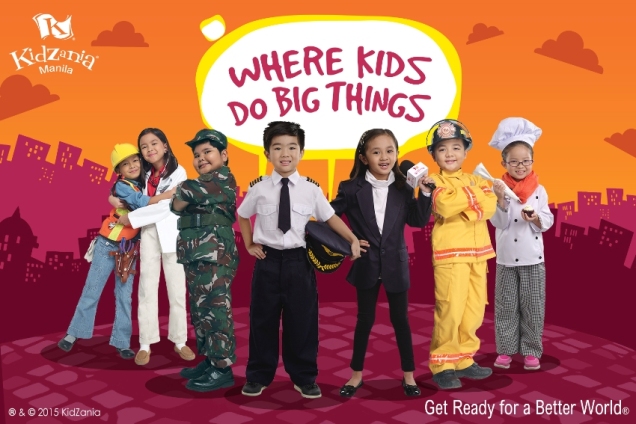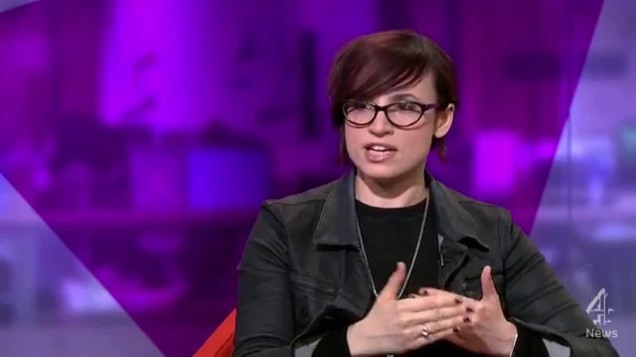
–
Corporations purchase your labour in exchange for a salary and other defined benefits. Yet skilled professional workers are increasingly demanding that their employers also play the role of a nurturing, identity-affirming auxiliary parent.
Today, on my weekly scroll through corporate networking social media site LinkedIn, I came upon that most annoying of phenomena – the corporate humblebrag.
In case you are unfamiliar, the corporate humblebrag is a status update or article generally written by some cretinous individual who takes excessive pride in their firm (outside of which they have no life) and thinks that their organisation’s craven feats of pandering to the social justice priesthood somehow reflect a deep-seated virtue in themselves.
LinkedIn is chock full of such posts. Just as online pornography is said to account for up to 30% of total internet traffic, so the vast majority of posts on LinkedIn now consist of corporate humblebrags, people trying to ingratiate themselves with their current and future employers and colleagues by conspicuously and repeatedly trumpeting even the most banal of news items about their companies.
The corporate humblebrag which prompts this blog post is particularly bad, and centres on global consulting firm Accenture’s efforts to bring about harmony between world religions – a feat which has eluded the world’s greatest thinkers, theologians and statesmen, but which is apparently all in a day’s work for a modern global professional services outfit.
Ellyn Shook, Chief Leadership and Human Resources Officer of Accenture writes:
Those of you who are regular readers have heard me talk about Accenture’s aspiration to be the most truly human organization in the digital age. As we continue to peel back the layers on what “truly human” means, at the heart is helping our people be successful both professionally and personally. And, to be at our best, we need to be comfortable being our true selves and expressing our feelings at work.
Peeling back the layers on what “truly human” means? This is the type of existential question which has consumed humankind for millennia, without resolution. It hardly seems likely that Accenture’s drive to be “the most truly human organization in the digital age” is going to crack the secret of life when the most prominent philosophers, theologians, artists and scientists throughout history have all come up short.
The self-aggrandising article continues:
We started our “Building Bridges” journey last year in the midst of racial unrest in the U.S. Our people told us that it’s stressful when they feel they can’t talk openly in the workplace about things that happen in the world or at home that affect them deeply. It makes them feel like they don’t belong and that perhaps their co-workers are unaware or don’t care about things that are important to them.
Why do I get the distinct feeling that Accenture’s “Building Bridges” scheme is probably only receptive to some viewpoints and perspectives about the racial unrest in America – and that the people being encouraged to speak and rewarded for doing so are those who propagate the current identity politics dogma which dictates that race is not something to be ignored but rather scrupulously and punishingly observed, with everybody seen not as an individual, not as an American but as a member of an oppressed community (or the oppressing white male group)?
Somehow I imagine that were an Accenture employee to stand up in one of these “Building Bridges” meetings and venture the kind of opinion typically made on this blog – that we should be colourblind in our interactions with people and that identity politics only serves to fracture society and create a self-fulfilling culture of passive victimhood – that they would find themselves up in front of HR pretty fast, and out the door escorted by security not too long afterwards. But perhaps I am being uncharitable.
More:
We recently convened a Building Bridges session in New York on the topic of religion. Yes, one of those supposed taboo topics that you’re advised to avoid – along with politics – right?! Well, the bottom line is religion is important to many of our people. And, it’s critical to foster cross-faith and multicultural understanding and respect. At the very least, it helps us understand the religious observances of our colleagues. But what I really see is deeper connections among our people.
Oh goody, religion in the workplace. At this point, Ellyn Shook hands over to her sycophantic underling Dan Eckstein, head of Accenture New York’s Interfaith Employee Resource Group – which apparently started out as a Bible study group for Christian employees before being hijacked and taken over in order to fulfil the glorious higher purpose of social justice activism.
Here’s Dan, in his own words:
As an observant Jew, I’ve always been passionate about inclusion and diversity, especially the topic of one’s faith at work. After graduating college, it was a challenge to figure out how I wanted to balance my religion and my work. I found myself trying to compartmentalize my work life from my religious life. But it didn’t feel right. I asked my parents, grandparents and mentors for advice. I’ll never forget the story of my Grandpa when he arrived in NY after the Holocaust and surviving the Auschwitz concentration camp. He was a fur matcher and he told me that almost every Friday in the winter he would leave work early to get home for the Sabbath by sundown. When Monday came around he would go back to work and they would fire him for leaving early. As a survivor, my Grandpa taught me to always be proud of who I am and to stand up for my beliefs.
I ultimately decided to wear my Kippa to work because I wanted to be transparent about who I am, and be consistent both inside and outside the office. I feel it represents my true self and is something that I’m proud of. As a leader, I also hope that I am a role model to others, encouraging authenticity.
Fine. That’s all well and good – people should certainly be free to express themselves at work as far as practicable and in line with their role. But then it starts to get weird:
Our Interfaith ERG hosted a Building Bridges session on August 11 where over 100 people packed into the NY office training room to talk about faith at work. We decided to anchor this session around the theme of “story telling.” Everyone has a story, but we’re often so busy or distracted at work that we don’t take time to ask or share.
[..] We ended our session by asking local faith leaders – Rev. Doyeon Park, Brahmachari Karuna, Rabbi Larry Sernovitz, Mohammed Al-Mathil and Rabbi Bob Kaplan – to reflect on the day and offer messages around hope, transparency, courage and community. Mohammed Al-Mathil encouraged us to ask questions from a place of respect and to do a bit of homework when coming to conversations about religion. Brahmachari Karuna shared a story of his father, a Human Resources leader, who seeks to find points of beauty in other religions, which helps to spark conversations with colleagues to explore commonalities and points of beauty across their different faiths.
It’s amazing that anyone in Accenture’s New York office finds time to align boxes in PowerPoint, sit on 3-hour client conference calls or just do some good old fashioned smoke testing on a new SAP deployment when they are all so busy learning about other faiths and affirming one another’s chosen identities.
And this is just the tip of the iceberg. The same culture now pervades nearly every large company with offices in major world cities or key industry hubs – any place where college educated knowledge workers gather in high concentration. For example, it is now almost compulsory for corporations to conspicuously endorse Pride Month and acknowledge it with a veritable festival of sponsorships and office activities.
There is nothing particularly wrong with this – if executives want to engage in corporate virtue-signalling then this is their choice. But these forays into social activism inevitably come down hard on one specific side of the debate, with little tolerance for those with differing views – even if they are conscientious and upstanding employees.
For example, this is what the Head of HR Strategy for one multinational firm had to say on LinkedIn about the recent Google Memo saga, in which developer James Damore was summarily fired for publishing a frequently and deliberately-misrepresented memo calling for Google to look again at the policies through which it aims to increase diversity:
Inclusion and diversity can be a prickly topic, although these issues don’t need to be sticky if handled in an appropriate manner. A great example set by Google’s CEO following the engineer’s ‘anti- I&D manifesto’. Having sent a clear email to all employees, he fired the employee in question and returned from his holiday immediately to take time to discuss the topics further with Googlers. Bravo for great leadership, mirroring words with actions. #strongleadership #diversity #inclusion
How then is an employee of this corporation who happens to agree with James Damore’s perfectly reasonable argument supposed to feel when it becomes clear that their own Head of HR strongly supports the firing of people such as themselves simply for failing to agree with the prevailing social justice groupthink; that every kind of diversity is encouraged in their firm, except for ideological diversity?
More to the point, why is it now necessary for our employers to continually nurture and affirm us as though we are needy toddlers? Why do we look to the corporations we work for to be our moral lodestar, a source of emotional support and a powerful auxiliary parent to adjudicate every petty interpersonal dispute that may arise between us and our coworkers?
When you work for a company you are selling them your labour – manual, mental or sometimes emotional – and in exchange you get paid a wage or a salary. That’s the sum total of the relationship that should exist between employer and employee in a capitalist system, and that’s a good thing. We don’t want to go back to the Victorian days where wealthy industrialists took it upon themselves to watch over the moral fibre of their workforce, regulating speech, recreation and behaviour in purpose-built company towns.
Of course people form important professional connections and bonds of friendship with colleagues, and employees are required to buy into whatever company culture exists in the various ways that it manifests (at least if they want their careers to prosper), but this still falls under the remit of labour. And the corporation has traditionally only been interested in nurturing such relationships to the extent that they help the employee perform their job and improve their skills (and consequently the value of their labour) – through training and intra-company networking events, for example.
I won’t deny that it is nice when corporations take sensible measures to improve the wellbeing of their workforce and increase employee engagement – and there are a whole range of ways to accomplish these goals, from bonus systems and employee reward schemes to the nature of performance appraisals and even small token gestures like free fruit or snacks for staff. I have personally benefited from many such initiatives in my own corporate career. But again, these schemes were designed to incentivise me to stay with the company or to work harder, not to fill in gaping holes in my psyche.
Yet apparently thousands if not millions of well-educated and gainfully employed people look to their employers – huge corporations which ultimately often have little allegiance to either their home country, country of operations or indeed their employees – to help realise their potential as human beings. That’s just plain creepy.
And note also that this is a mental affliction which only seems to affect middle class workers in the creative, tech or professional service industries. You don’t get minimum wage burger-flippers at McDonald’s demanding that the corporation “peel back the layers” of their humanity or otherwise validate their existence and identity at every turn. The relationship is purely transactional – they show up for work, put in a shift, go home and get paid. The same goes for retail work, semi-skilled clerical work and those in the service industries.
(In fact the only organisation where such intimate involvement in the private lives, personalities and identities of their staff seems remotely appropriate is the military, which in order to make people into effective warriors and leaders must essentially deconstruct and rebuild people from the ground up during basic training, with very different boundaries of privacy and intimacy to other private or public sector employment).
In other words, this phenomenon or corporate coddling is something that upper middle class professional knowledge workers are bringing on themselves, not something which is imposed upon them (as one might have imagined from following the Google Memo saga). It is no longer enough for corporations to provide a water cooler, cheap coffee and a relatively consistent ambient air temperature – now rank and file employees are effectively demanding that their employers pander to their every emotional need as well, be it support with their sexuality, gender identity, religion or any number of other issues which are best tended to in one’s own personal time.
I must say that I find this trend fascinating and repellent, in equal part. I genuinely struggle to identify with the kind of mindset that would prompt an intelligent, driven employee to organise an interfaith religious symposium for their office, or to facilitate a training workshop in LGBTQ+ allyship on company time – other than the obvious excuse of wanting to avoid the tedium of doing real, actual value-adding work (which I totally get).
If I were still working in a large professional services firm with one of these gung-ho HR departments, I would sooner that they fire everybody with the word “diversity” in their job title and raise my salary by a couple of quid than be continually validated in my identity as an trans-class, mixed-race, semi-privileged cisgender heterosexual male by some gimlet-eyed, Kool-Aid drinking corporate apparatchik. But apparently I am in the minority.
Admittedly, LinkedIn isn’t the best gauge of these things, being populated mostly by fellow corporate Kool-Aid drinkers who share endless posts about how “proud” they are that their firm won some industry award for sustainability in toilet paper consumption. But there are clearly enough people who value – nay, demand – being condescended to in this way by their employers that large firms are willing to pull out all the stops and treat their employees like the children they apparently yearn to be.
Perhaps I am a grouch and an outlier on this, and I would certainly welcome the input and perspective of anybody who works in corporate HR or one of these diversity or employee-nurturing workstreams. But to me, this trend is just another casualty of the Cult of Social Justice and Identity Politics, not to mention a symbol of the relentless infantilisation of Western society, with grown adults in prestigious jobs now seeking to regress back into coddled childhood, one insipid LinkedIn status update at a time.

–
Support Semi-Partisan Politics with a one-time or recurring donation:
–
Agree with this article? Violently disagree? Scroll down to leave a comment.
Follow Semi-Partisan Politics on Twitter, Facebook and Medium.







